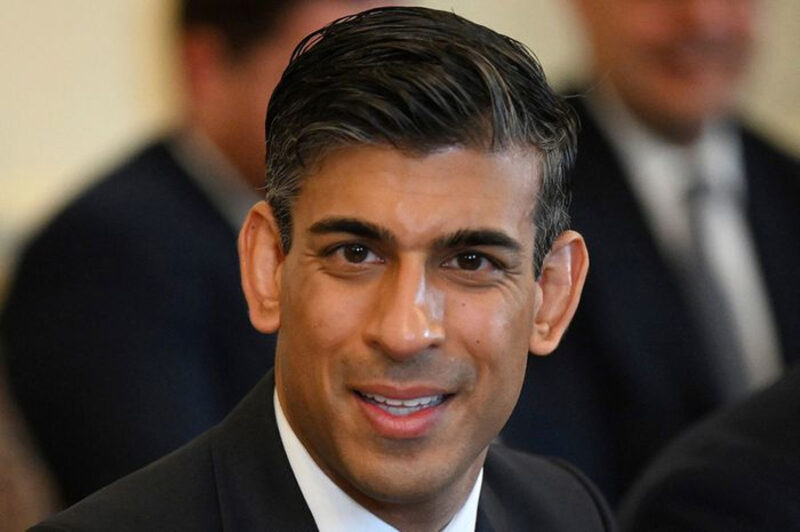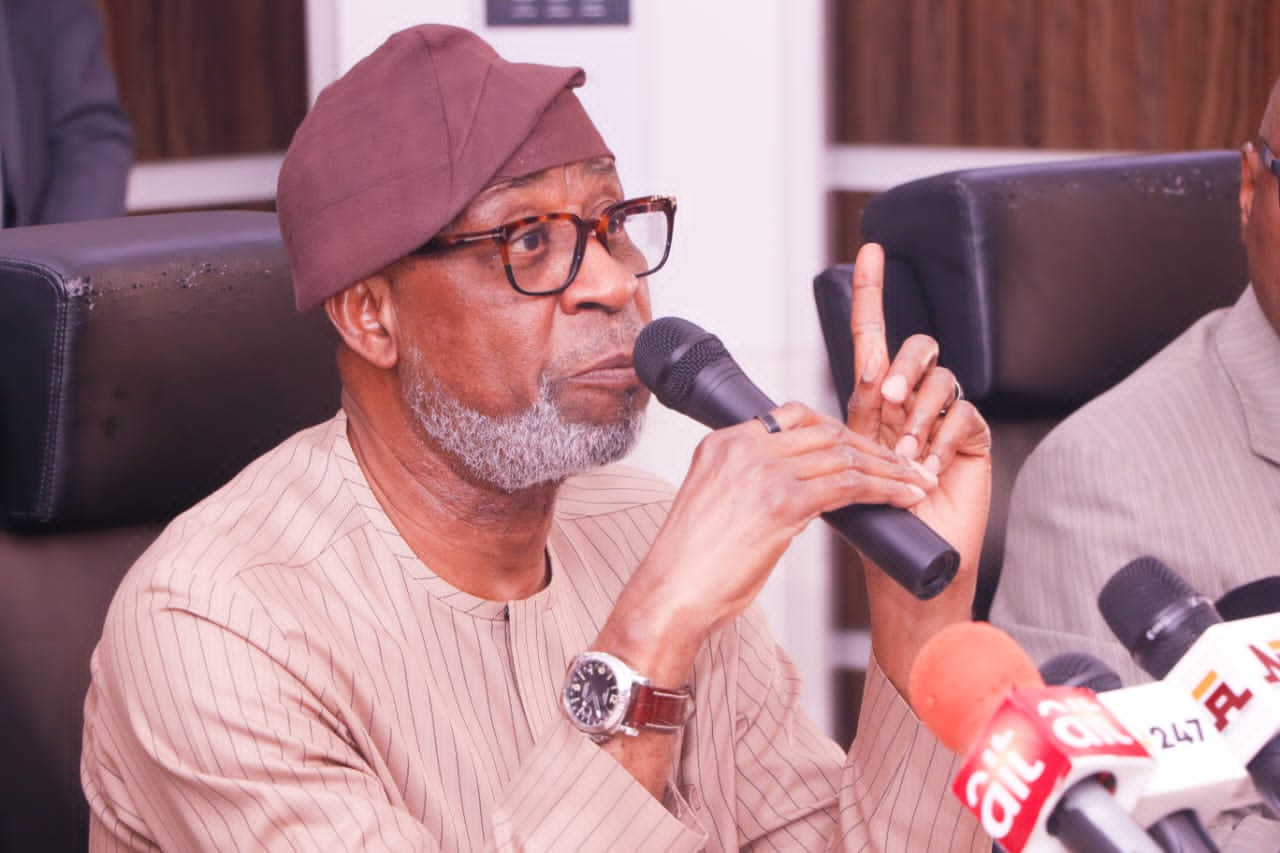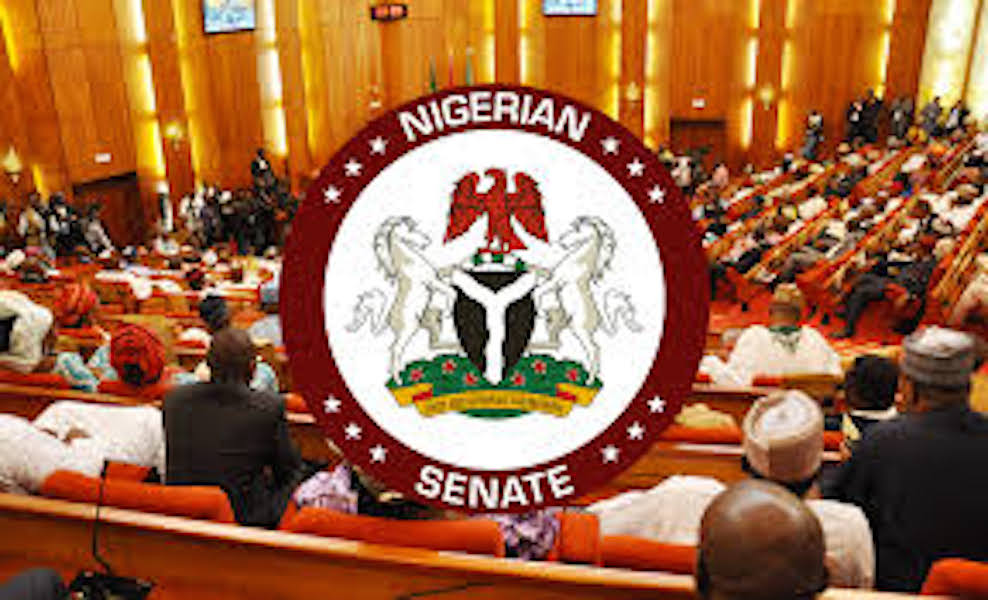News
Japa: UK set to bar family of Nigerian students, others

Japa: UK set to bar family of Nigerian students, others
The United Kingdom is set to bar foreign students including Nigerians from bringing family members into the country.
The move is to curb the rising number of migrants into the country.
Already, the net migration into the UK has hit one million with Tory MPs asking Prime Minister Rishi Sunak “to get a grip on the rocketing numbers”.
The UK permits dependants to accompany their spouses or parent(s) who have a valid student visa.
According to the report, UK ministers are expected to announce the immigration clampdown this week’s Tuesday or Wednesday.
The ban will affect all master’s students and some other post-graduates, but it will not apply to PhD students who are highly skilled and whose courses last three to five years.
The development will affect many Nigerian students hoping to pursue their postgraduate studies in the UK, as they accounted for the highest increase in the number of dependants accompanying persons with study visas in 2022.
News
ICPC tracks N219.84bn in MDAs, constituency projects

ICPC tracks N219.84bn in MDAs, constituency projects
The Independent Corrupt Practices and Other Related Offences Commission, ICPC, has tracked N219.84 billion to contractors and ministries, departments and agencies, MDAs, of the federal government.
The Chairman of the ICPC, Musa Adamu Aliyu, SAN, who disclosed this at a briefing in Lagos yesterday, said the tracking focussed on critical sectors such as education, agriculture, healthcare and infrastructure which he added, spanned 26 states and the Federal Capital Territory, FCT, across all six geo-political zones of the country.
“The Constituency and Executive Projects Tracking Group (CEPTG) has tracked a total of N219, 843,922,945.48 across 176 ministries, departments, and agencies, MDAs, since its inception in 2019.
READ ALSO:
- Nigeria’s solid minerals worth over $750bn — Minister
- Lagos cleric, 45, docked for raping 22-year-old lady
- Senate begins moves to harmonise NIN, BVN, other identity platforms
‘’The initiative is to ensure government funds are directed towards impactful projects that benefit the most vulnerable Nigerians,’’ he said.
According to the ICPC boss, the phase 6 tracking which commenced in November 2023 and continued through the first quarter of this year, is ongoing.
He said: “Finally, we want to assure Nigerians that ICPC, in the discharge of its enforcement mandate, is committed to adherence to the rule of law and international best practices in the investigation and prosecution of persons suspected to have committed corrupt practices.’’
The CEPTG, conceived in April 2019 as a preventive and intervention measure, is initiated to tackle corruption and, among other things, engender good governance, transparency, and accountability within the body polity. It focuses on how well monies allocated to critical sectors by the government are utilised.
Highlighting the findings from Phase 6 tracking, the commission’s chairman said a total of 1,721 government-funded projects were tracked within the Phase 6 tracking cycle.
ICPC tracks N219.84bn in MDAs, constituency projects
News
Nigeria’s solid minerals worth over $750bn — Minister

Nigeria’s solid minerals worth over $750bn — Minister
The Minister of Solid Minerals Development, Dele Alake, revealed a preliminary report by German firm GeoScan that estimates Nigeria’s solid minerals are worth $750 billion. He highlighted this during a summit organized by the National Institute for Policy and Strategic Studies (NIPSS) and Bruit Costaud, emphasizing the sector’s potential contribution to Nigeria’s goal of achieving a trillion-dollar economy.
Alake noted President Bola Ahmed Tinubu’s commitment to reforms in the mining sector to prevent Nigeria from merely being a mining pit for solid minerals. He stressed the importance of data availability to attract investors and stimulate job creation and economic growth through mineral processing plants.
“We are working with the World Bank, Excalibur and GeoScan, a German company, to get the necessary data on the sector. That is why the federal government signed a memorandum of understanding with Geoscan, and they did a preliminary survey of our minerals’ output and potential. They gave us a figure of $750bn worth of minerals embedded under the ground of Nigeria.”
READ ALSO:
- Lagos cleric, 45, docked for raping 22-year-old lady
- Senate begins moves to harmonise NIN, BVN, other identity platforms
- Pregnant woman among nine people injured in Lagos gas explosion
Collaborations with organizations like the World Bank, Excalibur, and GeoScan aim to gather essential data for the sector. The memorandum of understanding signed with GeoScan resulted in a preliminary survey revealing the substantial value of Nigeria’s mineral resources.
Nasarawa State Governor Abdullahi Sule highlighted the importance of investing in solid minerals, particularly citing the significance of lithium, which he likened to gold. He announced the impending commissioning of Nigeria’s largest lithium processing factory, expected to process 4,000 metric tons daily and transport over a million tons of lithium annually.
Ayo Omotaya, Director General of NIPSS, reiterated the summit’s purpose of charting a path forward for the mining sector, underscoring the necessity of strategic planning and collaboration to harness Nigeria’s mineral wealth.
Nigeria’s solid minerals worth over $750bn — Minister
News
Senate begins moves to harmonise NIN, BVN, other identity platforms

Senate begins moves to harmonise NIN, BVN, other identity platforms
The Senate advocates for integrating the National Identification Number (NIN), Bank Verification Number (BVN), and other digital identity platforms into a unified system. Salisu Shuiab, Chairman of the Senate Committee on ICT, Cyber Crimes, highlighted this during a discussion with the Federal University of Agriculture, Abeokuta.
Shuiab emphasized that a single identity system is crucial for national security and anti-corruption efforts. He criticized the fragmented approach, citing it as wasteful and detrimental to security measures.
He said a unified digital identity system would also help the Federal government plan its various intervention programmes through equitable distribution of resources.
“I can assure Nigerians that the era where you have silos, one individual being a dimension in different places, is not only a waste, it also contributes to insecurity and indeed even corruption.
READ ALSO:
- Pregnant woman among nine people injured in Lagos gas explosion
- UCL: Vinicius scores double as Real Madrid hold Bayern Munich in semi-final showdown
- Binance founder bags jail term in US
“We are making a move to harmonise our identity database. We have engaged the relevant ministries—the Ministry of Communication Digital Economy, the Ministry of Industry, and even the CEO of the National Identity Management Commission—to ensure that a Nigerian who has registered with NIMC and has a national identity number is recognised across all platforms, whether for passport purposes, driver’s license, or the various interventions that the federal government is making.
“You cannot have a digital economy without a reliable digital identity, and digital identity starts with harmonising our database to ensure that one individual is recognised across all the systems,” Shuiab said.
He called for a partnership between FUNAAB and his office on training rural farmers in agricultural production.
In his remarks, the Vice Chancellor of the FUNAAB, Prof. Olusola Kehinde, said he would be willing to partner with relevant agencies to ensure food security in the country.
Senate begins moves to harmonise NIN, BVN, other identity platforms
-

 metro9 hours ago
metro9 hours agoLabour Day: Nigerian workers are dedicated, resilient, says NURTW leader
-

 International3 days ago
International3 days agoGaza: Hamas studies new Israeli truce proposal, 32 more killed
-

 Education2 days ago
Education2 days agoBREAKING: JAMB releases 2024 UTME results
-

 Business3 days ago
Business3 days agoNaira rebounds, sells for 1,280/$ at parallel market
-

 News2 days ago
News2 days agoTerrorist negotiator Tukur Mamu seeks transfer out of DSS custody to Kuje prison
-

 News3 days ago
News3 days agoConfession of 85-year-old monarch: I intended killing my son, use boy parts for ritual
-

 News14 hours ago
News14 hours agoFG set to repatriate 20,000 Nigerians from Chad, Cameroon
-

 News18 hours ago
News18 hours agoAmid fuel scarcity, petrol marketers threaten to withdraw services over ₦200bn debt






















